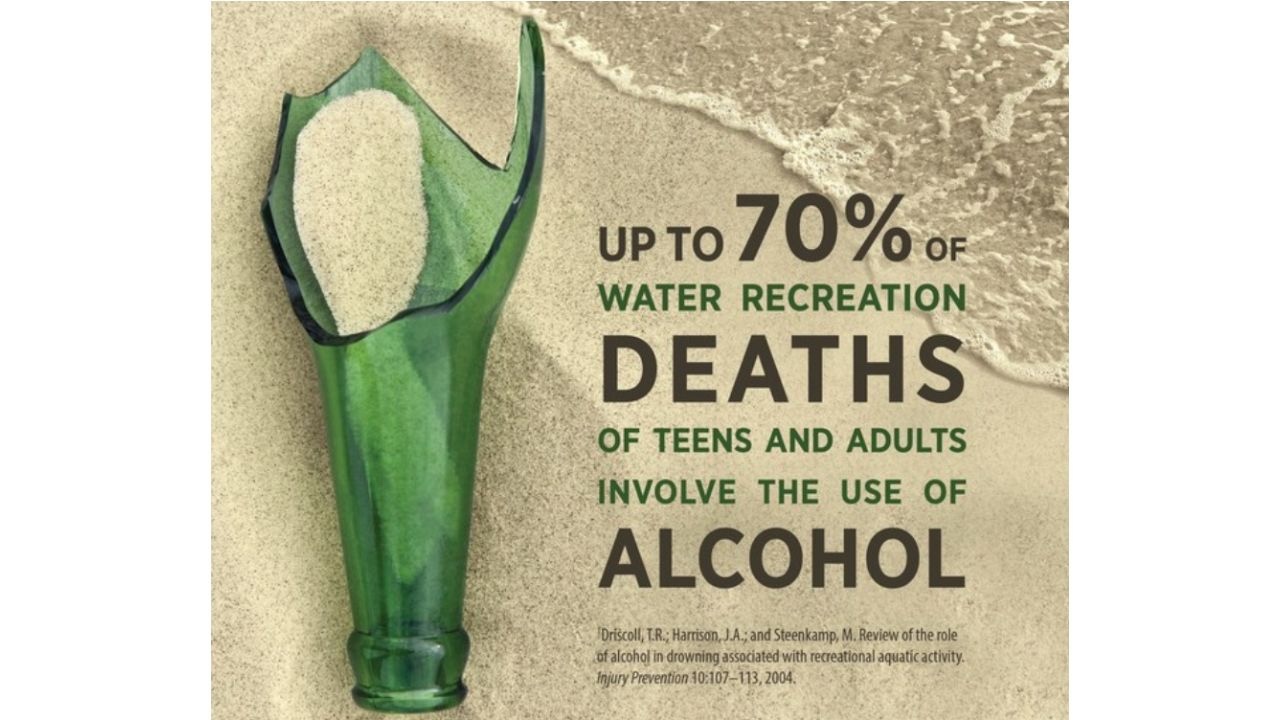
Risky Drinking Can Put a Chill on Your Summer Fun
Jun 10, 2022The following article was published by the National Institute on Alcohol Abuse and Alcoholism.
Summer is a wonderful time for outdoor activities with family and friends. For some people, a day at the beach, on the boat, or at a backyard barbecue will include drinking alcoholic beverages. But risky drinking and summer activities don’t mix. Drinking impairs both physical and mental abilities, and it also decreases inhibitions—which can lead to tragic consequences on the water, on the road, and in the great outdoors. In fact, research shows that up to 70 percent of all water recreation deaths of teens and adults involve the use of alcohol.1
Swimmers Can Get in Over Their Heads
Alcohol impairs judgment and increases risk-taking, a dangerous combination for swimmers. Even experienced swimmers may venture out farther than they should and not be able to make it back to shore, or they may not notice how chilled they’re getting and develop hypothermia. Surfers could become over-confident and try to ride a wave beyond their abilities.
Even around a pool, alcohol can have tragic consequences. Inebriated divers may collide with the diving board, or dive where the water is too shallow.
Boaters Can Lose Their Bearings
The U.S. Coast Guard reports that alcohol consumption contributes to 19 percent of boating deaths in which the primary cause is known, making alcohol the leading known contributor of fatal boating accidents.2 A boat operator with a blood alcohol concentration (BAC) of 0.08 percent or higher is 14 times more likely to be killed in a boating accident than an operator with no alcohol in their system. Reaching a 0.08 percent BAC would require about 4 drinks in two hours for an average-size woman (171 lbs) or 5 drinks in two hours for an average-size man (198 lbs). It is important to note that the odds of a fatal crash begin to increase with the first drink.3 In addition, according to the U.S. Coast Guard and the National Association of State Boating Law Administrators, alcohol can impair a boater’s judgment, balance, vision, and reaction time. It can also increase fatigue and susceptibility to the effects of cold-water immersion. If problems arise, intoxicated boaters are ill equipped to respond quickly and find solutions. For passengers, intoxication can lead to slips on deck, falls overboard, or accidents at the dock.
Drivers Can Go Off Course
The summer holidays are some of the most dangerous times of the year to be on the road. When on vacation, drivers may be traveling an unfamiliar route or hauling a boat or camper, with the distraction of pets and children in the car. Adding alcohol to the mix puts the lives of the driver and everyone in the car, as well as other people on the road, at risk.
Dehydration Is a Risk
Whether you’re on the road or in the great outdoors, heat plus alcohol can equal trouble. Hot summer days cause fluid loss through perspiration, while alcohol causes fluid loss through increased urination. Together, they can quickly lead to dehydration or heat stroke.
So What’s In That Drink, Exactly?
Summer cocktails may be stronger, more caloric, and more expensive than you realize. You may be watching what you eat so you can fit into those summer clothes, but watching what you drink can keep you safe. NIAAA’s alcohol calculators can help you assess calories, drink size, alcohol spending, blood alcohol levels, and the number of standard drinks in each cocktail. (Visit https://www.rethinkingdrinking.niaaa.nih.gov/tools/calculators/Default.aspx)
Stay Safe and Stay Healthy
When alcohol is involved, summer will end but consequences can endure. However, you can have fun in the sun and still be safe. Avoiding alcoholic beverages while piloting a boat, driving a car, exploring the wilderness, and swimming or surfing is a good place to start. And if you’re hosting a party or gathering, be sure to:
- Offer a variety of nonalcoholic drinks.
- Provide a variety of healthy foods and snacks.
- Help your guests get home safely—use designated drivers and taxis.
- If you are a parent, understand the underage drinking laws—and set a good example.
Be smart this summer—think before you drink, and make sure that you and your loved ones will be around to enjoy many summers to come.
For more information on preventing problems with alcohol this summer, and tips on cutting back, visit: https://www.rethinkingdrinking.niaaa.nih.gov
Sources:
- Driscoll, T.R.; Harrison, J.A.; and Steenkamp, M. Review of the role of alcohol in drowning associated with recreational aquatic activity. Injury Prevention 10:107–113, 2004.
- U.S. Coast Guard. 2017 Recreational Boating Statistics. Available at: https://www.uscgboating.org/library/accident-statistics/Recreational-Boating-Statistics-2017.pdf. Accessed 5/22/19.
- Smith, G.; Keyl, P.; Hadley, J.; et al. Drinking and recreational boating fatalities: A population-based case-control study. JAMA 286:2974–2980, 2001.

